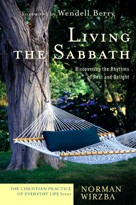

The last two posts have announced new books about culture. Not culcha as in high society and the fine arts, but books which explore how Christian faith impacts and interacts with the surrounding society, the ethos, values, habits and institutions of “the world” of which we are a part. Both of these books are very interesting to us, and I wanted to make sure you knew about them. The first I mentioned, by Craig Carter, is mostly a theological study of the legitimacy of Richard Niebuhr’s famous book Christ and Culture. The one by Mark Toulouse offers a typography of four kinds of faith that interact with “public life” these days. Both, it seems are more about political and legal matters than other aspects of culture, let alone the deeper driving forces which animate the 21st century culture.
And so, today I want to tell you—sings the praises of— two different kinds of book that reflect on our role in our world, that invite profound, spiritual thinking that impacts civic society and political life, but are not so much overtly about government, public battles, the culture wars, or social action. The first is about—have an open mind, now—farming.
Learning the Language of the Fields: Tilling and Keeping as Christian Vocation by Daniel G. Deffenbaugh (Cowley; $14.95) would be more than adequate as a book about a Christian view of ecology and enviromental stewardship. And heaven knows we need to be reading those kinds of creation-care books. But it is more. As the back cover states, it “connects ecology with ritual and spirituality with community” Deffenbaugh writes in gentle, flowing prose even as he argues forcefully that our agressive agricultural models have been disasterous. It is a very nice book.
I trust you will immediately think of Wendell Berry, as well you should. This, though, seems a bit more overtly Christian and spiritual; one moment he is reflecting on a sense of place and bio-communities and the next he is preaching nicely about vocation and calling. One section he writes movingly of Appalachian homecoming rituals, the next he extols the benefits of organic gardening. Even as he ponders Genesis 1 & 2, he is talking about sacred space and our sense of belonging to the rhythms of the creation.
I don’t do much of this stuff. Like prayer, though, I like reading about it, and hope that somehow, as these words whirl around my heart and mind and conversations, I might learn to care more about my place, my town, my land. This is a lovely and attractive book, suitable for careful, spiritual reading.
The next one is about Sabbath, so is obviously useful for your quiet time reading. Living the Sabbath: Discovering the Rhythms of Rest and Delight by Norman Wirzba (Brazos; $19.99) deserves much more sustained reviewing than I am able to do here. Wirzba is a Wendell Berry scholar, teaches at a college in Kentucky, has contributed to the immensely imporant School(s) for Conversion and is the author of a major, scholarly work on how religion has effected enviromental movement (The Paradise of God.) He also edited the agarian essays of Mr. Berry into a very, very nice volume, so it makes sense that Wendell wrote the forward to this book. It is, most likely, the first time Berry has written for a Christian publishing house, even though his faith is clearly evident in many of his books and essays. He was interviewed in Sojourners not long ago, which was nice, too…but a forward, well, that is just cool!
Living the Sabbath is part of a Brazos Press (and The Ekklesia Project) series of books, “The Christian Practice of Everyday Life.” These have covered topics such as matieralism and the middle class lifestyle, eating, technology, medicine. Each are exceptionally thoughtful studies, and this one looks similiarly brillant. And, it is just lovely, a wonderful book—as James Smith says, it is “a cup of cold wather for thirsty souls.”
Hearts & Minds Books
More than a bookstore

The link between Mind and Social / Environmental-Issues.The fast-paced, consumerist lifestyle of Industrial Society is causing exponential rise in psychological problems besides destroying the environment. All issues are interlinked. Our Minds cannot be peaceful when attention-spans are down to nanoseconds, microseconds and milliseconds. Our Minds cannot be peaceful if we destroy Nature. Industrial Society Destroys Mind and Environment. Subject : In a fast society slow emotions become extinct. Subject : A thinking mind cannot feel. Subject : Scientific/ Industrial/ Financial thinking destroys the planet. Subject : Environment can never be saved as long as cities exist. Emotion is what we experience during gaps in our thinking. If there are no gaps there is no emotion. Today people are thinking all the time and are mistaking thought (words/ language) for emotion. When society switches-over from physical work (agriculture) to mental work (scientific/ industrial/ financial/ fast visuals/ fast words ) the speed of thinking keeps on accelerating and the gaps between thinking go on decreasing. There comes a time when there are almost no gaps. People become incapable of experiencing/ tolerating gaps. Emotion ends. Man becomes machine. A society that speeds up mentally experiences every mental slowing-down as Depression / Anxiety. A ( travelling )society that speeds up physically experiences every physical slowing-down as Depression / Anxiety. A society that entertains itself daily experiences every non-entertaining moment as Depression / Anxiety. FAST VISUALS /WORDS MAKE SLOW EMOTIONS EXTINCT. SCIENTIFIC /INDUSTRIAL /FINANCIAL THINKING DESTROYS EMOTIONAL CIRCUITS. A FAST (LARGE) SOCIETY CANNOT FEEL PAIN / REMORSE / EMPATHY. A FAST (LARGE) SOCIETY WILL ALWAYS BE CRUEL TO ANIMALS/ TREES/ AIR/ WATER/ LAND AND TO ITSELF. To read the complete article please follow either of these links : PlanetSave EarthNewsWire sushil_yadav